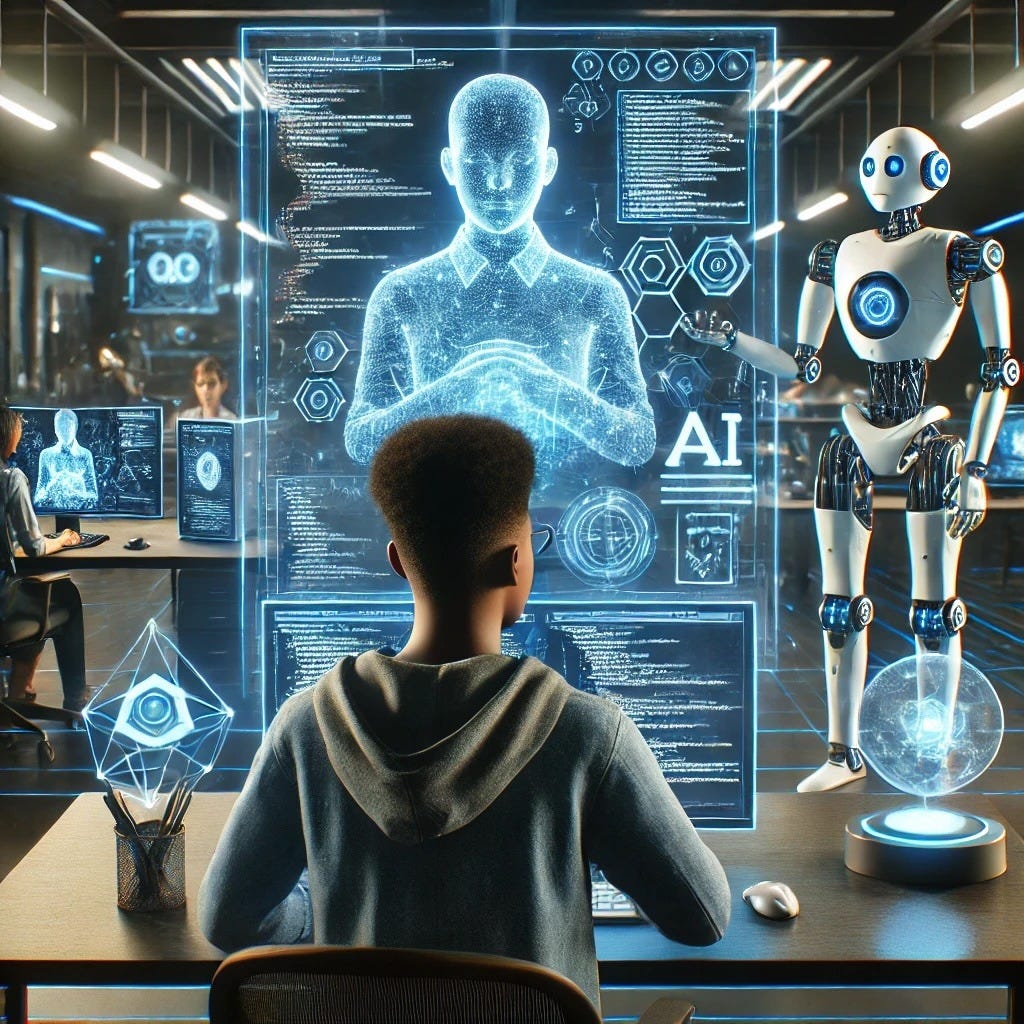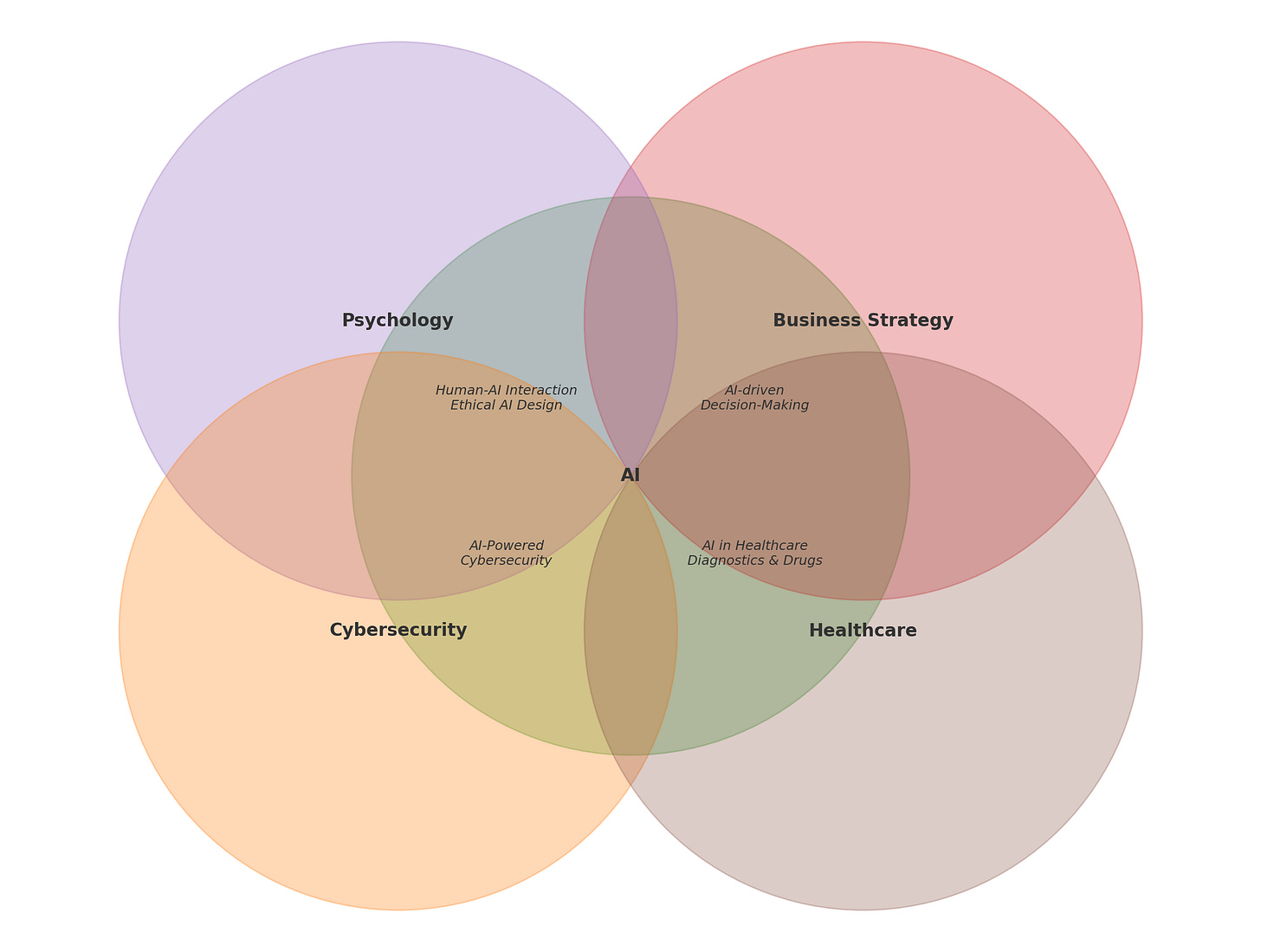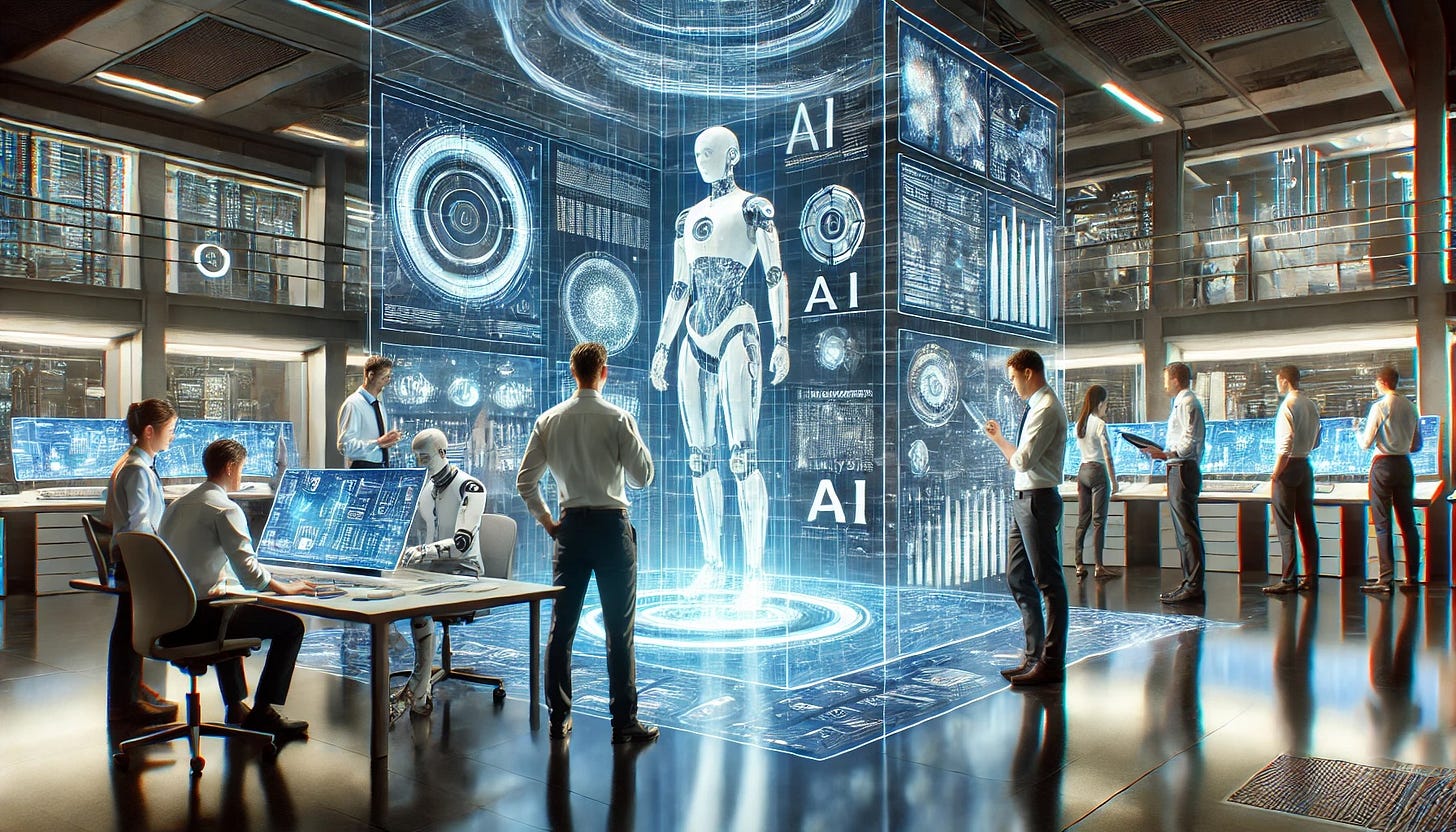Why a Computer Science Degree is More Valuable Than Ever in the Age of AI
The Future Belongs to Those Who Build, Adapt, and Innovate
We’re in the middle of a technological revolution. Artificial intelligence is rewriting the rules of software development, automating tasks that once required extensive programming expertise. AI can generate code, optimize systems, and even suggest architectural solutions.
So, does this mean a Computer Science degree is becoming obsolete?
Far from it.
As someone with a deep background in Computer Science, Software Engineering, Computer Engineering, and AI-driven systems, spanning 15+ years in IT leadership, I can tell you this with absolute certainty. A Computer Science degree is more valuable today than ever before.
But the way we think about it needs to evolve.
AI is a Tool, Not a Replacement for Engineering Expertise
Yes, AI can generate code. But can it architect a secure, scalable, and efficient system? Can it make nuanced trade-offs between performance and cost? Can it design a robust, fault-tolerant cloud infrastructure?
Not independently, at present.
A CS degree doesn’t just teach how to code. It teaches why things work the way they do. It provides the foundational knowledge to:
✅ Design and optimize algorithms for efficiency and scalability
✅ Build resilient and secure systems that AI alone cannot safeguard
✅ Understand operating systems, networking, and hardware at a deep level
✅ Debug, refine, and create technology, not just consume AI-generated outputs
To illustrate the importance of foundational CS knowledge, let's consider a common scenario: optimizing a search algorithm. Imagine you're building a system to search through a massive dataset of customer records.
Naive Approach: A simple linear search would examine each record sequentially, resulting in an O(n) time complexity, where 'n' is the number of records. This is inefficient for large datasets.
CS-Driven Optimization: A CS graduate, understanding data structures and algorithms, would recognize the potential for improvement. They might implement a binary search, which requires the data to be sorted. Binary search has a time complexity of O(log n), a significant improvement for large datasets.
Further Optimization: Beyond that, they could explore using hash tables for near-constant time lookups (O(1) on average), or consider more advanced data structures like trees or graphs depending on the nature of the data and search criteria.
Challenges: The optimization process isn't just about choosing an algorithm. It involves:
Understanding the trade-offs between time and space complexity.
Considering the characteristics of the data (e.g., sorted vs. unsorted, static vs. dynamic).
Adapting the algorithm to specific hardware constraints.
Knowing when and how to implement effective caching strategies.
AI tools can suggest code snippets, but they can't make these nuanced design decisions based on a deep understanding of algorithmic principles. That's where a CS education is indispensable. It's not just about writing code; it's about understanding the underlying principles that make code efficient and scalable.
Beyond algorithmic optimization, a Computer Science education delves into a wide array of foundational concepts that are crucial for building robust and scalable systems. For instance:
Data Structures: Understanding data structures like linked lists, trees, and graphs allows engineers to efficiently organize and manipulate data. This knowledge is essential for tasks ranging from database management to AI model development.
Software Design Patterns: Familiarity with design patterns (e.g., Singleton, Factory, Observer) enables developers to create modular, maintainable, and reusable code. These patterns provide proven solutions to common software design problems.
Operating Systems and Networking: A deep understanding of operating systems and network protocols is essential for building distributed systems, cloud applications, and secure networks. These concepts are crucial for optimizing performance, ensuring reliability, and safeguarding against cyber threats.
These foundational concepts, combined with algorithmic knowledge, provide CS graduates with a comprehensive toolkit for tackling complex software engineering challenges.
AI is a productivity enhancer, not a substitute for real engineering expertise.
Addressing the Shifting Landscape of Entry-Level Roles
It's true that AI is rapidly advancing, and certain entry-level programming tasks, like generating boilerplate code or automating repetitive scripting, may become increasingly automated. This might lead some to believe that the demand for junior programmers will diminish.
However, a Computer Science degree prepares you for far more than just writing basic code. It equips you with the critical thinking, problem-solving, and system-level understanding necessary to tackle complex challenges that AI cannot address.
Moving Beyond Basic Coding: While AI can generate code snippets, it cannot design complex software architectures, debug intricate system failures, or make strategic decisions about technology implementation. These tasks require a deep understanding of computer science principles, which a CS degree provides.
Focus on Strategic Roles: As AI automates routine tasks, the demand will increase for professionals who can:
Define and manage complex AI-driven projects.
Integrate AI into existing systems and workflows.
Develop and maintain robust and secure AI infrastructure.
Address the ethical implications of AI deployment.
Adaptability and Problem Solving: A CS degree fosters adaptability and problem-solving skills, allowing graduates to quickly learn new technologies and adapt to the evolving demands of the industry. This adaptability is crucial in an AI-driven world where new tools and techniques are constantly emerging.
Understanding the 'Why' Not Just the 'How': AI tools can tell you 'how' to do something, but a CS degree teaches you 'why' it works. This fundamental understanding is what allows you to innovate, optimize, and create new solutions that AI cannot replicate.
Therefore, while the nature of entry-level roles may evolve, a CS degree remains invaluable for those seeking to build a successful and fulfilling career in the age of AI. It prepares you to move beyond basic coding and into more strategic and impactful roles.
The Most Valuable Skills Are at the Intersection of Disciplines
The future of Computer Science isn’t just about programming. It’s about understanding how AI integrates with other domains.
The most sought-after professionals today are those who can bridge multiple fields.
💡 AI + Business Strategy = AI-driven decision-making for competitive advantage
💡 AI + Psychology = Human-AI interaction and ethical AI design
💡 AI + Cybersecurity = Defending against AI-powered cyber threats
💡 AI + Healthcare = Revolutionizing medical diagnostics and drug discovery
To truly lead in the AI era, it’s not just about knowing Computer Science. It’s about knowing how to apply it in innovative ways.
The Rise of Hybrid AI-CS Roles
The software engineering landscape is shifting. Traditional CS roles are evolving into hybrid positions that combine AI and CS expertise.
🚀 Machine Learning Ops (MLOps): AI engineers who understand software development and cloud deployment
🚀 AI-Augmented Software Engineers: Developers who use AI tools to accelerate coding but still own system design
🚀 Data-Centric Engineers: Professionals who specialize in AI-ready infrastructure, data pipelines, and model optimization
Companies are not replacing software engineers with AI. They are upskilling them into these emerging hybrid roles.
The Need for Continuous Learning
One of the biggest misconceptions is that a degree alone is enough. In reality, CS professionals must constantly evolve. AI is advancing at an unprecedented pace, and the best engineers are those who invest in continuous learning.
🔹 Staying ahead means mastering AI-assisted coding tools like GitHub Copilot, Anthropic Claude Sonnet, Claude Code, and OpenAI Codex
🔹 Understanding AI system deployment in cloud environments is now a must-have skill
🔹 Certifications in machine learning, cloud computing, and cybersecurity are becoming industry standards
A Computer Science degree gives you the foundation. But continuous learning ensures you remain relevant.
AI Isn’t Replacing Engineers, It’s Creating More Opportunities
Contrary to fear-mongering headlines, AI isn’t eliminating engineering jobs. It is expanding them. New opportunities are emerging in:
📊 AI & Machine Learning Engineering – The architects behind intelligent systems
🔐 Cybersecurity & AI Risk Management – Defending against AI-powered threats
☁️ Cloud Computing & AI Infrastructure – Scaling AI apps across distributed systems
🖥️ AI-Augmented Software Development – Using AI as a co-pilot, not a replacement
📡 Data Engineering & AI Ethics – Building responsible and unbiased AI systems
The demand for CS professionals who understand AI is only increasing. The real risk isn’t AI replacing software engineers. It is software engineers who fail to adapt to AI-powered workflows.
Final Thoughts: A Letter to My 18-Year-Old Self
If I could hop in a time machine and chat with my 18-year-old self, fresh out of high school and buzzing with possibilities, here's what I'd say: 'Kid, you're on the right track with Computer Science. But buckle up, because the ride's about to get wild.'
I'd tell him:
"Learn AI like it's your second language." Not just how to use the tools, but how they think, how they break, and how they can build something truly amazing.
"Forget silos. Connect the dots." Your best ideas won't come from just code. They'll come from understanding how code intersects with business, with psychology, with the very fabric of our lives.
"Never stop being a student." The tech world? It's a marathon, not a sprint. You'll be learning new things until the day you retire (and probably beyond).
Because here's the truth: the future isn't just about using AI. It's about crafting it. It's about being the architect, not just the construction worker.
So, yeah, if I were 18 again, I'd still dive headfirst into Computer Science. But I'd do it with eyes wide open, ready to embrace the chaos and the magic.
And to you, reading this now? Is a CS degree still worth it in 2025?
Absolutely. But are you ready to not just keep up, but to lead the charge?
🔔 Enjoyed this post? Subscribe to Decode with Dr. Chika for more insights on AI, tech, and the future of innovation!




